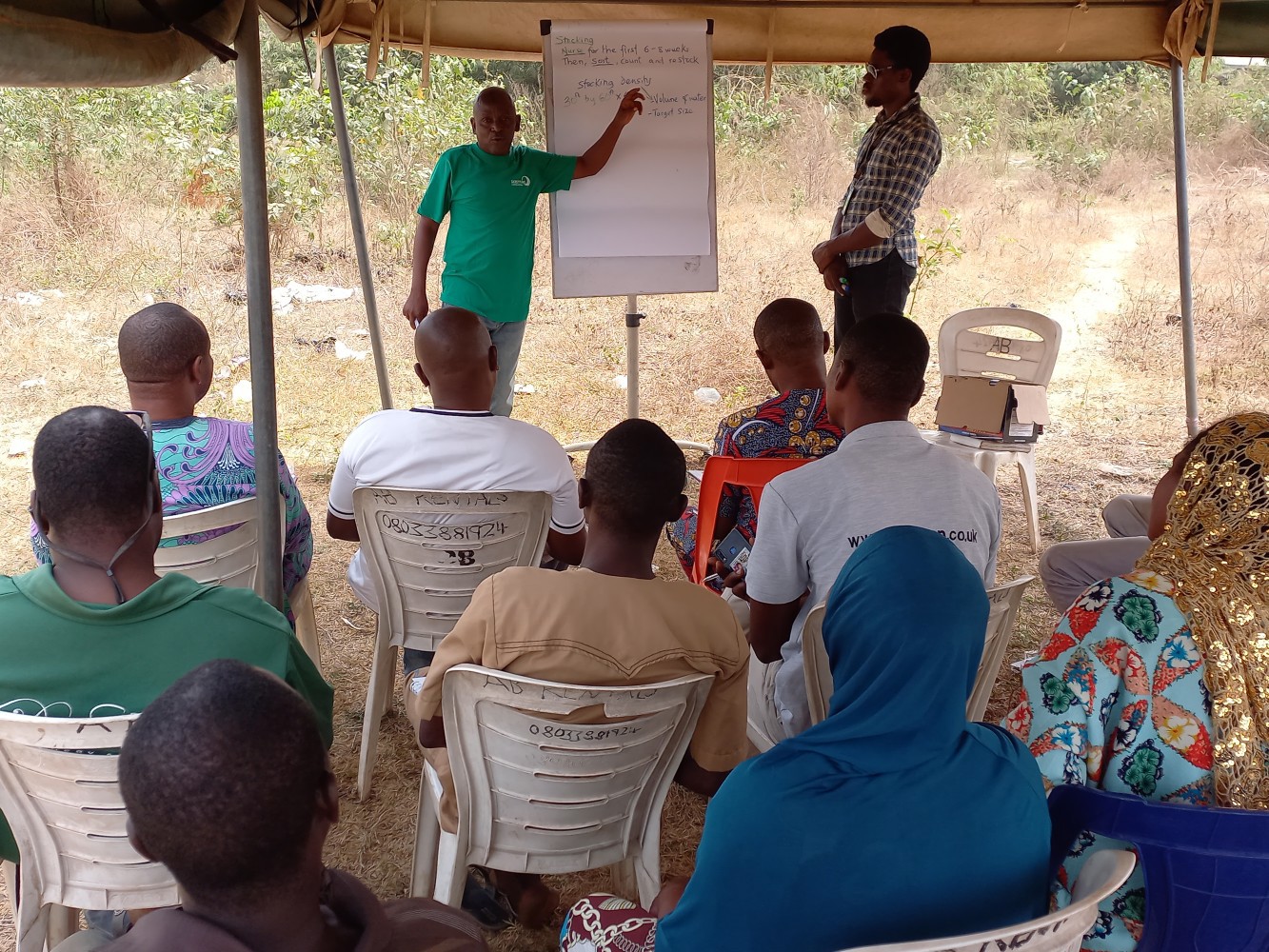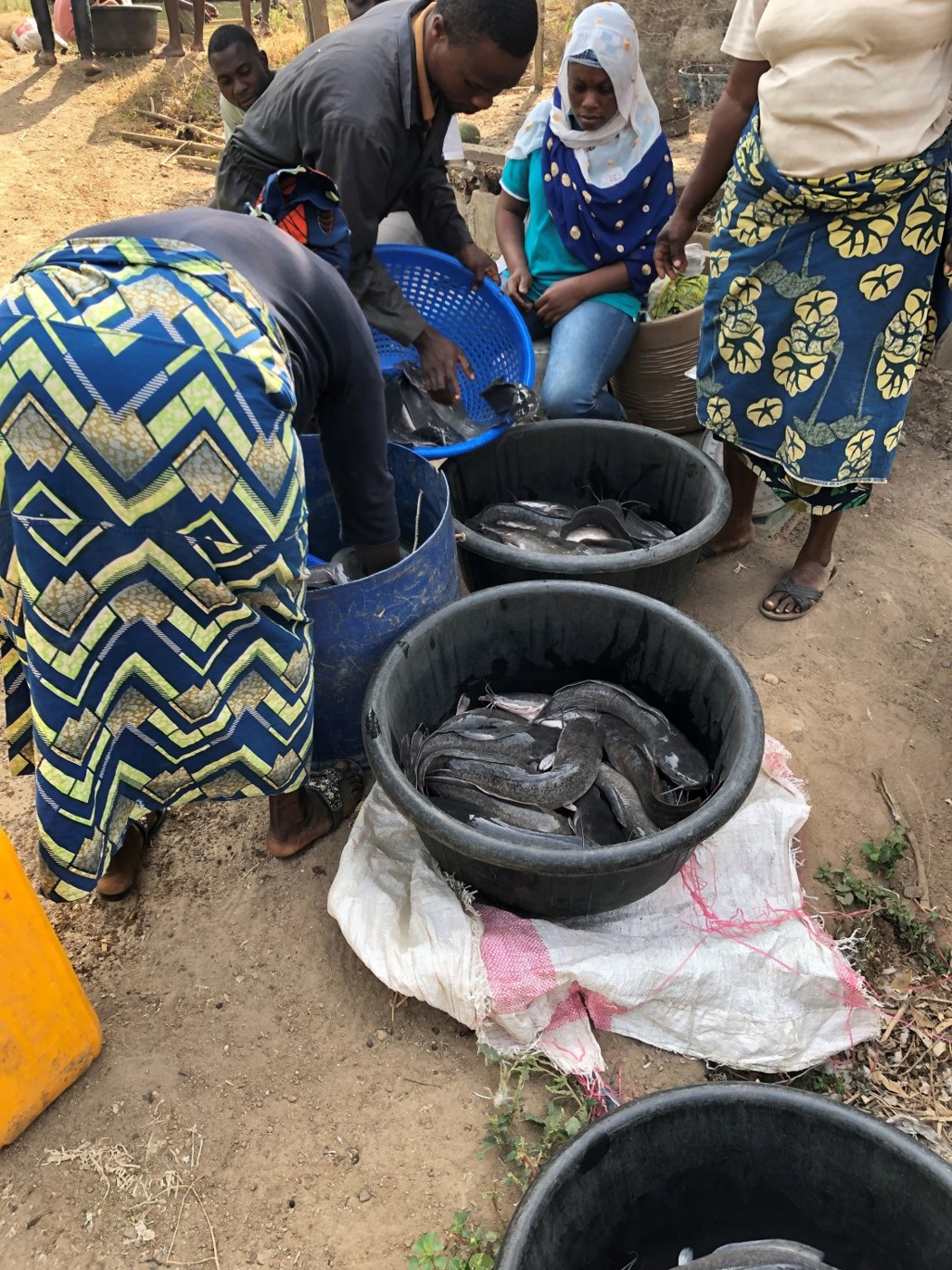Today is World Hunger Day, which was founded by The Hunger Project in 2011 to call attention to the global food crisis. As a leader in the global animal nutrition and aquaculture industry, we are committed to alleviating world hunger levels. That’s why our company's purpose is Feeding the Future - helping our customers produce more food in sustainable ways, to feed the growing population.
World Hunger Day: How the Catfish Sustainability Project is an example of innovative change

It’s especially important that regions of the world where the hunger crisis is most severe receive support from the wider food and farming industry. This is why the work of employees like Omoniyi Ajitoni, who is Project Manager of our Catfish Sustainability Project in Nigeria, is something we are so proud of. Omoniyi shares his thoughts on World Hunger Day, and his role in the Catfish Sustainability Project, here:
What does World Hunger Day mean to you?
World Hunger Day is crucial to raise awareness about how many people still don’t have adequate access to food and to encourage change on a global platform. For instance, here in Nigeria, the demand for meat and fish is much higher than the currently available supply - and more costly than people can afford. The need for this to change is a big factor in why I took up my role as Project Manager of the Catfish Sustainability Project.
Can you explain a bit about your role in the Catfish Sustainability Project and your day-to-day work?
In Nigeria, we previously had just captured fisheries, which for years were unable to meet the protein needs of our society. They also failed to improve the livelihood of farmers, as they did not offer consistent employment (and therefore did not help to improve the standard of living).
Due to these issues, there was a need to introduce aquaculture - to help small scale farmers farm fish sustainably, provide ongoing employment, and help meet the protein demands in the region.
This is exactly what we have done through launching the Catfish Sustainability Project seven years ago, and as Project Manager, I am responsible for building the aquaculture capacity and providing advisory services to farmers. We work in collaboration with a local NGO and organise frequent training for farmers, teaching them how to culture their fish in a sustainable way and improve their productivity.

The Catfish Community Project was established in 2015. After seven successful years, can you share some of the most positive outcomes you have seen from the project?
We have had lots of positive feedback from our farmers, providing testament that the project is achieving its goals. From 2016 to 2022, farmer profitability has increased from 11% to 39.3%, and income per farmer has increased from N536,112 to N1,181,147 (approx $1,291 to $2,845).
There has also been significant growth in average farmer production - from 400kg to 2500kg of fish per year, which is contributing more protein provisions to the region and supporting Nutreco’s purpose of Feeding the Future.
The project has grown from 50 farmers when it first started to 1200 farmers today, showing just how successful it has been to date.
What is your proudest moment in your involvement with the project?
I have had countless proud moments since I started working on the project, but the ones I will never forget are when we hear from farmers about how their profits have increased significantly - allowing them to expand their farms, employ more workers, and improve their living standards. Knowing our work is helping to make a real difference means so much to me.
What further changes do you think need to be made / initiatives need to be created to address the issue of hunger in Nigeria?
I would recommend that the Nigerian government and other private organisations follow in the footsteps of our project, and do what they can to support farmers in improving their yields. If this kind of support was carried out on a grand scale, we could greatly increase food production, access to protein sources, and improve the standard of living in the country.
Media contact
